Fake conclave, true pope?
How universal and peaceful adherence might result in the unlikely outcome of a true pope after an illegitimate conclave.
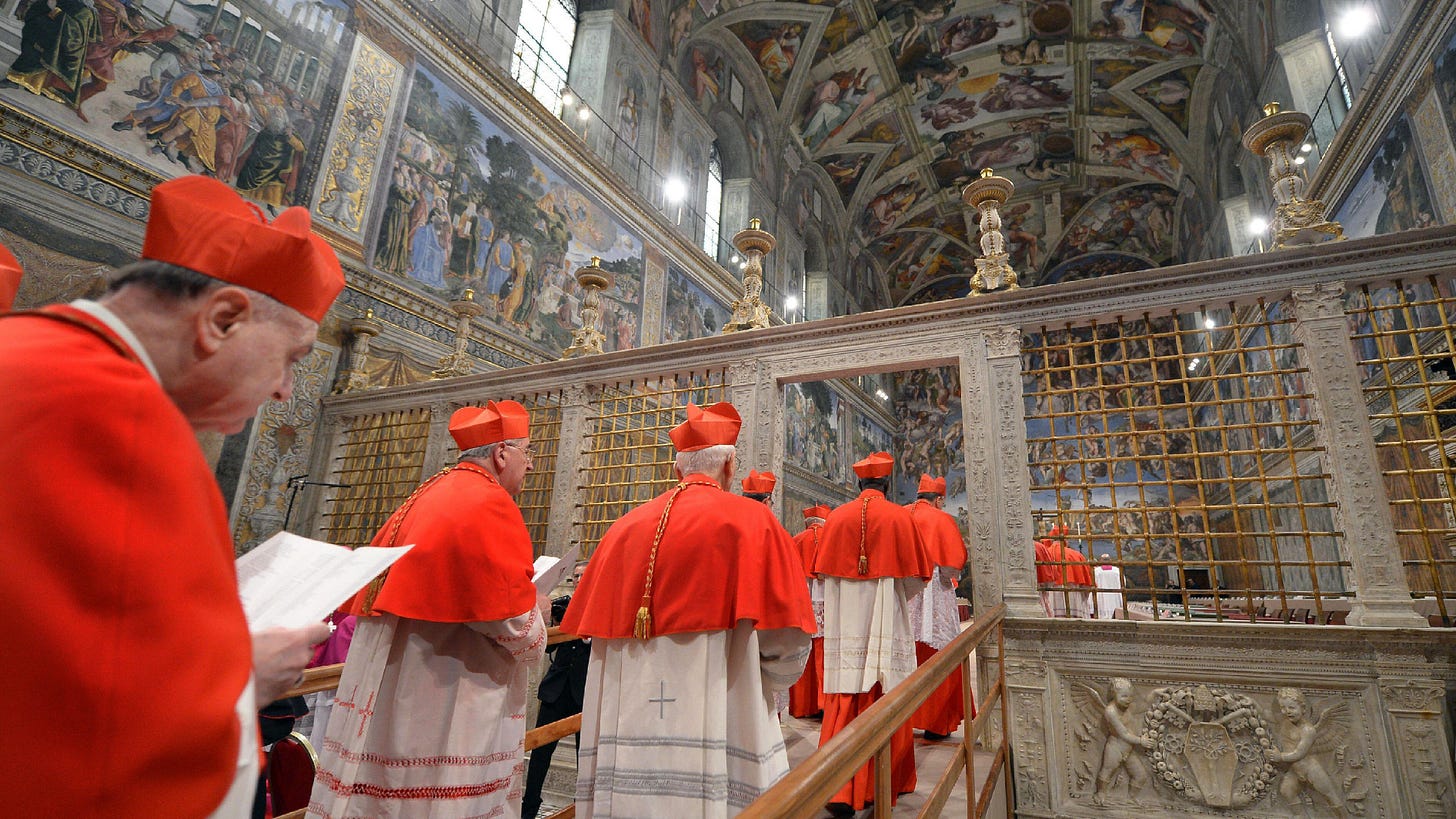
How universal and peaceful adherence could possibly result in the unlikely outcome of a man attaining the papacy after a fake conclave.
Could a man elected by a false conclave still become pope?
Explaining peaceful and universal adherence after the death of Francis
Many believe that the post-conciliar claimants to the papacy must have been true popes—because the alternative would mean ‘a dead end.’
This belief, repeated even by those who should know better, holds that if these men were not popes, there would be no true cardinals left, no mechanism to elect a pope, and thus no visible Church.
But this is false. Theologians have considered this problem, and there are multiple possible paths by which a true pope could be elected again—even without any cardinals. For instance, see our series on the topic:
Papal elections without the cardinals? – St Robert Bellarmine
Papal elections without the cardinals? – Journet & Cajetan
What is the Church like during a period of sede vacante? Journet & Cajetan tell us
Papal elections without the cardinals? – Gaspar Hurtado SJ
Papal elections without the cardinals? – Cardinal Billot
Papal elections without the cardinals? – Francisco de Victoria OP
Further, the following article by M.J. McCusker:
Finally, we could consider the way in which the Great Western Schism ended, in which Martin V seems to have been elected outside of the ordinary provisions of pontifical law.
In this present article, I shall explore a further possibility that could be accepted by all parties to the dispute: a man elected by an illegitimate conclave attaining the papacy through the peaceful and universal adherence of the Church.
However, before we can discuss this, we must be clear as to why the Holy See has been vacant for these last few decades.
Impediments to election: when a man cannot become pope
The conclusion that the Holy See is vacant rests on a variety of different arguments, each of which point towards the same conclusion.
One such argument is that these recent claimants have been open non-Catholics, on the grounds of open heresy, schism and/or apostasy from the Catholic religion.
Another is that they have had an established, visible and objective programme to impose a new religion on the Catholic Church; from this point, some argue that their acceptance of their respective conclaves has been only apparent, and that they have in fact accepted something other than the Roman Pontificate as traditionally understood.
There are other arguments that lead to moral certainty, but this is not the place to explain or defend them further. The point is that these arguments presume that the claimants in question have posited some sort of impediment to their election.
The Catholic Church considers that only a male Catholic with the use of reason may be elected to the papacy.1 This, in turn, means that the following cannot attain the papacy:
A woman
A boy below the age of reason, or a man who is permanently insane
A man who is not a Catholic (due to being unbaptized, or being an open heretic, schismatic or apostate)
The Catholic Encyclopaedia summarises the issue:
A layman may also be elected pope, as was Celestine V (1294). Even the election of a married man would not be invalid (c. "Qui uxorem", 19, caus. 33, Q. 5). Of course, the election of a heretic, schismatic, or female would be null and void.2
These impediments are presented in satirical form below:
But what would happen if a person suffering an impediment mentioned above was elected to the papacy, and apparently recognized as the pope by the majority of Catholics?
What peaceful and universal adherence actually means
Let us consider what Cardinal Billot says about the concept of ‘peaceful and universal adherence’ as a means of establishing the identity of the Roman Pontiff as a dogmatic fact:
‘[O]ne point must be maintained as completely unshaken and firmly placed beyond all doubt: the adherence alone of the universal Church will always be of itself an infallible sign of the legitimacy of the person of the Pontiff, and, what is more, even of the existence of all the conditions requisite for legitimacy itself.
‘One need not fetch from afar proof of this claim. The reason is that it is taken immediately from the infallible promise of Christ and from providence. The gates of hell shall not prevail against it, and Behold I am with you all days.
‘To be sure, for the Church to adhere to a false pontiff would be the same thing as if she were to adhere to a false rule of faith, since the Pope is the living rule which the Church must follow in belief and always follows in fact, as will be still more clearly apparent in what is to be said later.
‘By all means God can permit that at some time or other the vacancy of the see be extended for a considerable time. He can also allow a doubt to arise about the legitimacy of one or another man elected. But He cannot permit the entire Church to receive someone as pontiff who is not a true and legitimate [pope].
‘Therefore, from the time he has been accepted and joined to the Church as the head to the body, we cannot further consider the question of a possible mistake in the election or of a [possible] deficiency of any condition whatsoever necessary for legitimacy, because the aforementioned adherence of the Church radically heals the mistake in the election and infallibly indicates the existence of all requisite conditions.’3
Billot is saying that the Church cannot err in peacefully and universally adhering to a man as pope because, as Billot says, this would entail the Church adhering to a false proximate rule of faith, which is impossible.
Nonetheless, when the Church does adhere in this way to a man, it is an infallible sign that he is in fact the pope. This is so, whatever defects may have existed in his election—provided that the man was capable of receiving the office (that is, that no impediment of divine law persisted at the moment of this adherence).
This same idea is noted by Fr Damien Dutertre in his article on the subject. He cites the Dominican De Groot:
‘[T]he proposition “Pius X has been duly elected Roman Pontiff” cannot be put into doubt after the acceptance of the Church, by which even an illegitimate election can be ratified.’ (Emphasis added)4
In other words, even if a conclave was illegitimate and defective, its election could, under some circumstances, be ‘healed at the root’ by the peaceful and universal adherence of the whole Church.
Election by acclamation—what it does and does not mean
If Billot and others are correct, they are proposing a kind of ‘election by acclamation.’ The Catholic Encyclopaedia writes of acclamation proper:
‘The method of electing the Roman Pontiff is contained in the constitutions of Gregory XV, "Æterni Patris Filius" and "Decet Romanum Pontificem." Urban VIII's constitution, "Ad Romani Pontificis Providentiam", is confirmatory of the preceding. According to these documents, three methods of election alone are valid; namely, by scrutiny, by compromise, and by acclamation, or "quasi-inspiration."
‘This last form of election consists in all the cardinals present unanimously proclaiming one of the candidates Supreme Pontiff, without the formality of casting votes. As this must be done without previous consultation or negotiation it is looked on as proceeding from the Holy Ghost and hence is also designated "quasi-inspiration".
‘An example of this mode of election in more recent times is found in the case of Clement X (1670-76), formerly Cardinal Altieri, whose election is said to have been determined by the sudden cry of the people outside the conclave, "Altieri Papa", which was confirmed by the cardinals (Keller). Innocent XI (1676-89) is another example. The cardinals surrounded him in the chapel of the conclave and in spite of his resistance every one of them kissed his hand, proclaiming him Pope (De Montor).’5
The current situation is that only the cardinals may elect a new pope by acclamation—or at least that the acclamation of the any other body only attains legitimacy through their concurrence. However, this is a disposition of positive law, if these legitimate electors are absent, the power of election—by necessity—devolves upon the Church. Journet quotes Cajetan:
‘In a case where the settled conditions of validity have become inapplicable, the task of determining new ones falls to the Church by devolution, this last word being taken, as Cajetan notes not in the strict sense (devolution is strictly to the higher authority in case of default in the lower) but in the wide sense, signifying all transmission even to an inferior. […]
‘… when the provisions of the Canon Law cannot be fulfilled, the right to elect will belong to certain members of the Church of Rome. In default of the Roman clergy the right will belong to the Church universal, of which the Pope is to be Bishop.’6
These theologians are not saying that ‘the laity can elect the pope by acclamation,’ and neither am I. This appears to refer to jurisdiction devolving to the bishops (presumably ordinaries) and the Church as a moral body—not to individuals or laypeople in general. However, the mechanism discussed by Billot above appears to entail that, if an otherwise eligible candidate (and there do not appear to be many—or indeed any—in the current College of Cardinals) is invalidly elected to the papacy, the peaceful and universal adherence of the Church (if such occurs) could heal the defect at the root, and thus establish the man as pope.
Once the universal Church adheres to a man (or rather, his teaching) as the proximate rule of faith, there can be no doubt that he is the legitimate pontiff, however it is that he got there.
Why the post-conciliar claimants were never accepted in this way
The post-conciliar claimants were not “accepted and joined to the Church” in the way that Billot describes.
It is not credible to claim that they had been received in this way. Traditionalists have followed, cited and applauded these claimants when they agree with traditional doctrine—but the teaching of these claimants has by no means been their proximate rule of faith. This applies also to conservatives, particularly those who almost insert themselves into the equation, by mediating and interpreting Francis’ words.
Similarly, liberals have followed, cited and applauded the post-conciliar claimants when these men did liberal things, but otherwise disregarded them.
Further, this situation has persisted ever since the election of Paul VI. It was observed by the respected author Arnaldo Vidigal Xavier da Silveira, who posed these questions about the election of Paul VI, and left them unanswered:
‘[W]ould a certain very generalized though not always well defined distrust be sufficient to destroy the apparently pacific and universal character of the acceptance of the Pope? And if this distrust became a suspicion in numerous spirits, a positive doubt in many, a certainty in some, would the aforementioned pacific and universal acceptance subsist?
‘And if such distrusts, suspicions, doubts and certainties cropped out with some frequency in conversations or private papers, or now and again in published writings, could one still classify as pacific and universal the acceptance of a Pope who was already a heretic on the occasion of his election by the Sacred College?’7
In light of these questions, it is quite doubtful whether there has been a universal and peaceful adherence to these men in the relevant sense. If there had been, we would have had assurance of their legitimacy. Further, Francis’ election was incapable of being healed at the root, because he persisted in the impediments mentioned above.
However, unlike being of the female sex, the impediment of being a non-Catholic can be removed: the apparently elected man can become a Catholic.
The theologians note that the peaceful and universal adherence of the Church also entails that all requirements for a man to be pope be present. Fr Dutertre cites the Carmelites of Salamanca:
‘The active election, on the part of the Church, is evidently certain to us by quasi sensible and experimental evidence. Now to this active election, on the part of the Church, corresponds infallibly a passive election, or ability, on the part of the elect…
‘For although these conditions are in themselves contingent, they become infallible by their relation to the universal judgment of the whole Church, and on account of the promise of Christ. They are known indeed by the following reasoning: “The Church does not err in things which belong to faith and morals. But the universal Church has elected Innocent XI as the pope, for which it is required that he be a man, and that he be baptized. Therefore Innocent XI has these conditions.”8
For the same reason that such adherence would show that the man is eligible (i.e., by being an adult, male, baptised, sane, a Catholic, etc.), we can also be sure that Francis would never have enjoyed such adherence until he removed these two impediments, or any others that made him ineligible. The same applied to whoever is elected in his place.
Further, if Francis’ successor were to receive such adherence, then we could also be sure that any such impediments would have been removed or never present in the first place.
Could a Catholic be elected by a false conclave?
The first conclusion should be clear from the foregoing.
However unlikely a false conclave is to do so, it could elect a sane Catholic Man intending to abrogate Vatican II and so on (remembering, of course, that a conclave is not obliged to elect one of its members). If it did so, this man’s election would not be impeded by his being a woman, a non-Catholic or lacking the use of reason: it would “only” be impeded by having been elected by an illegitimate conclave.
This is indeed a significant impediment, to put it mildly. But such an election can be remedied by the universal and peaceful adherence of the Church, if such were to occur; and if it did, the man would be pope. Such an outcome would either be immediately obvious, or it would not. If it is not at least swiftly obvious that it has happened, then it obviously has not happened. The reality would soon become clear one way or the other.
Could a false pope convert and become pope?
As noted, the most likely outcome is that Francis’ successor will continue the Vatican II revolution, whether with or without Francis’ “enhancements.”
But let us pursue this idea further. Whether we have a Francis II or Benedict XVII, let us imagine that after a duration of time, he converts, removes all impediments to his election, and begins acting as pope. If this happened the world would not be happy about it, but they would certainly continue to recognise him as pope.
However, if he started acting as pope and as a Catholic, traditional Catholics would notice this. Such a change could be made most obvious with measures such as an abjuration and suppression of error, the abrogation of Vatican II, and so on.
It may take time, and there would be much concern that we were being deceived. But it is at least possible that trust would be progressively regained. Such a change could develop in such a way that, over time and in an obvious way, more and more Catholics, and eventually the Church herself, would come to recognise and adhere to him, peacefully and universally, as the Roman Pontiff and his teaching as her proximate rule of faith.
As we have seen, this would make it infallibly clear that he had, at some point, and by some means, actually become what he was not before, and what an invalid conclave was unable to make him—the Roman Pontiff.
Those who already think that it is important that “the whole world recognises him as pope” must surely allow us to argue that, if such a man removed any impediments to his election, he would be made pope by that fact alone, for the reasons already discussed.
This is because the argument from peaceful and universal adherence holds that whatever procedural defects there may have been in an election, the man’s claim is “sanated” and rendered valid—in other words, a man who was not legitimately elected pope in conclave becomes the legitimate pope through another means. In a sense, the invalid conclave was the “occasion” of his attaining the papacy, but not the actual cause.
Let’s see Billot’s words again:
Therefore, from the time he has been accepted and joined to the Church as the head to the body, we cannot further consider the question of a possible mistake in the election or of a [possible] deficiency of any condition whatsoever necessary for legitimacy, because the aforementioned adherence of the Church radically heals the mistake in the election and infallibly indicates the existence of all requisite conditions.
Even if the relevant adherence would have to be on the part of Catholics specifically (and not “the world at large”), this process could indeed still progressively occur, until clarity appears. Again, while this is unlikely, it is neither absurd nor impossible.
The exact moment at which such “sanation” takes place is irrelevant. The fact is that a man who had been intruded to the papacy, and appeared to have possessed the office de facto, may come to attain the office de jure under certain circumstances too.
Everyone (except Modernists and some ‘Rethinkers’) could be satisfied
This scenario should satisfy those who are called “totalist” sedevacantists (an infelicitous pair of terms), because the principles, facts and reality would point towards this former heretic and anti-pope having put aside his invalidating defects, such that any other defects would have been resolved through the universal and peaceful adherence of the Church.
This scenario should also satisfy the adherents to the Cassiciacum thesis of Bishop Guérard des Lauriers (who might be called “partialist” sedevacantists, due to their opposition to the “totalist” sedevacantists). These men hold that the post-conciliar claimants have been popes “materially,” due to what they consider to have been legitimate elections. The scenario discussed in this piece is compatible with their opinion that such a claimant had already enjoyed a valid election and designation, which he had finally accepted, and thus attained the office. In fact, some of the more vocal of these men would likely claim that this had proved their thesis to have been correct all along (being eager to claim this of any argument, however peripheral).
This scenario would also satisfy those who follow the so-called classical SSPX position—namely the practical course of adhering to tradition without adopting an official explanation of the crisis, leaving such theory for the future, after the crisis has passed. In such a scenario, the crisis has been resolved.
Those who had adopted a more explicit “recognise and resist” would presumably be satisfied too, because many of them never understood or accepted the depth of the problem in the first place. However, such men have entered a dangerous position through their adoption of a more or less hard line of “rethinking the papacy,” accompanied by a denial or doubt of the traditional teaching of the Church on the papacy and her own constitution. In the face of a true pope gloriously reigning, such men could be in danger of being pushed into schism.
The danger of being deceived, of course, extends to all parties: we must watch and pray, begging God that we be neither too credulous, nor too sceptical, depending on the circumstances; and not to allow uncertain but cherished opinions about secondary matters to become the criteria for recognising a true pope.9 In all cases, our duty is to conform to reality, not for a papal claimant to conform to our ideas—but this is a perilously tricky aspect of the crisis.
In the scenario in question, the “popesplainers” and conservative Novus Ordo persons would likely be satisfied, because they nearly always are satisfied with whatever the apparent papacy and hierarchy has told them.
Modernists would be furious and, like the Rethinkers, may end up in schism. While this represents a loss of souls, it is not important to the question. And, as St John said:
“They went out from us but they were not of us. For if they had been of us, they would no doubt have remained with us: but that they may be manifest, that they are not all of us.” (1 John 2.19)
At present, many Catholics agree that we have been without a pope reigning over us, however these words are to be understood and explained. But in the scenario discussed, we would have a pope reigning over us, and we would be able to say: habemus papam.
Conclusion
It may be that in the scenario discussed, no school of thought may know which was right—but this is also irrelevant.
In fact, the solution of the Great Western Schism with Martin V was debated for centuries, and even those involved in electing him did not agree on why or how they and the others involved had the right to do so. If we are not in the end times at present, our current situation could provide the subject matter for theological debate for years to come.
The main purpose of this piece has been to explain how a man elected by an illegitimate conclave could still become pope—through the peaceful and universal adherence of the Church.
But this explanation—of what would be an exceedingly unlikely event—also serves a secondary purpose: it refutes the oft-repeated universal claims that there are no solutions among sedevacantists, or that the Cassiciacum thesis is the only possible way forward.
However unlikely it may appear, this explanation provides another solution—one grounded in the teaching of eminent theologians and the perennial principles of ecclesiology. And for that reason alone, the claims of a “dead end” fall.
Returning to the 2025 conclave, I hope that this article shows that it is not an irrelevancy for us, but rather an unlikely but possible occasion for the end of the crisis. And though this is most unlikely, it is hardly more unlikely than the crisis itself: further, nothing is impossible to God.
As such, let us pray and offer sacrifices, petitioning God for a true Roman Pontiff and the end of the crisis in the Church.
This piece began as a set of private notes during the heated debates of 2021. I did not particularly want to get drawn into the debate at that time, so my friend “RealNazianzen” posted them instead.
Further reading:
HELP KEEP THE WM REVIEW ONLINE WITH WM+!
As we expand The WM Review we would like to keep providing free articles for everyone.
Our work takes a lot of time and effort to produce. If you have benefitted from it please do consider supporting us financially.
A subscription gets you access to our exclusive WM+ material, and helps ensure that we can keep writing and sharing free material for all.
(We make our WM+ material freely available to clergy, priests and seminarians upon request. Please subscribe and reply to the email if this applies to you.)
Subscribe to WM+ now to make sure you always receive our material. Thank you!
Follow on Twitter, YouTube and Telegram:
Fanning, William. "Papal Elections." The Catholic Encyclopedia. Vol. 11. New York: Robert Appleton Company, 1911. <http://www.newadvent.org/cathen/11456a.htm>.
Louis Cardinal Billot, De Ecclesia, Question XIV, Thesis XXIX §3. Translated by Novus Ordo Watch. NOW. Also discussed here:
De Groot, Summa Apologetica de Ecclesia Catholica, Ratisbonne, 1906, q. X, art. VI, p. 385. Available at https://thethesis.us/chapter-xiv/
Fanning, W. (1907). Acclamation (in Papal Elections). In The Catholic Encyclopedia. New York: Robert Appleton Company. http://www.newadvent.org/cathen/01099a.htm
Salmanticenses, Cursus Theologicus n. 43, in Dutertre, ibid.
For instance, perhaps some might make the abolition of the Pian Holy Week, or the removal of St Joseph from the Canon, or the confirmation of the “non-unacum” quasi-dogma a condition sine qua non for recognising a papal claimant. Who is to say whether such conditions are justified or not? We must commend ourselves and each other to the good Lord, and stay as humble as we can, if we wish to avoid being deceived when the crisis is “over.”





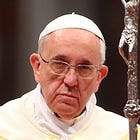
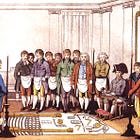

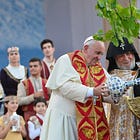
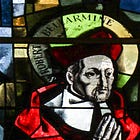
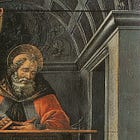
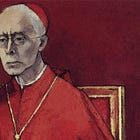
This article covers the topic very thoroughly; we know that the Church is not a human but a divine institution, and that it will last until the end of the world with the same constitution with which Christ established it; so unless Our Lord is ready to make His final appearance in the near future, the Church cannot lose its ability to produce a Pope, and a Pope will be produced sooner or later.
A solution that relies on faith and confidence in God and the people’s repentance and petitions to him that this might happen. One that doesn’t rely on merely human means.
Truly an apt way to end the crisis that arose due to a reliance upon human means (diplomacy) and the failure to heed heaven’s call and consecrate Russia.
Let us pray and beg God for it to happen 🙏🏻